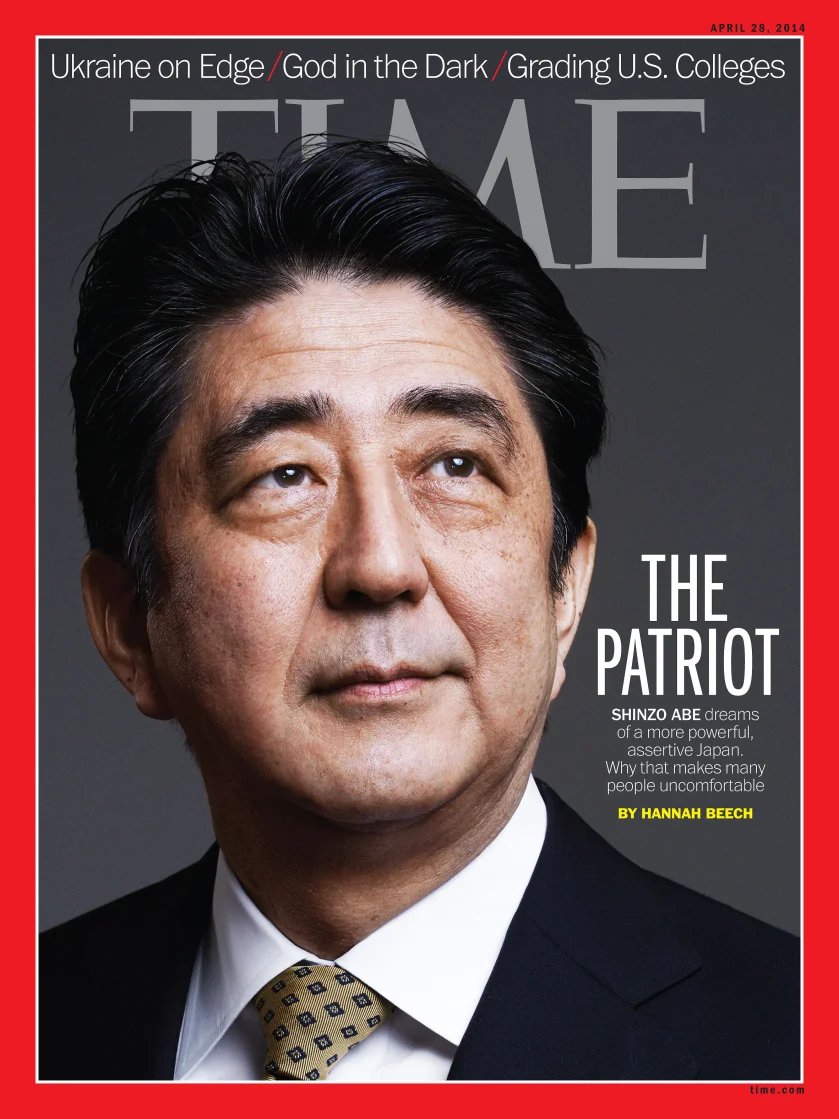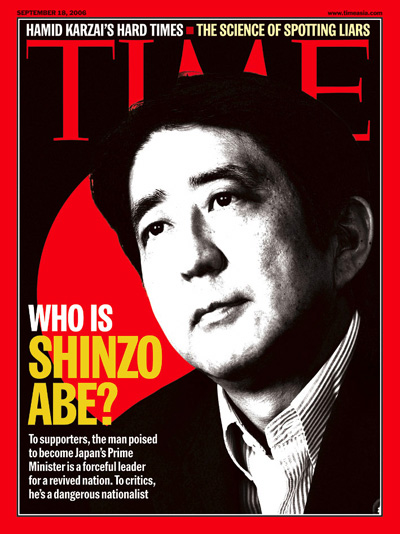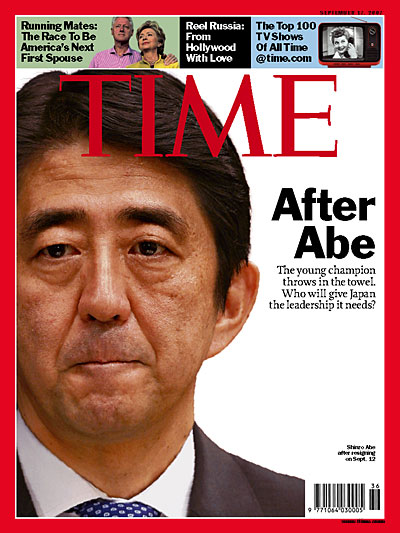
Shinzo Abe, Japan’s longest-serving prime minister, was assassinated Friday while giving a campaign speech in Nara. He was 67. A 41-year-old male suspect is now in custody.
Abe appeared on the cover of TIME twice during his first, one-year term as prime minister from 2006 to 2007 and once during his second term, which lasted seven years from 2012 to 2020. In 2014, he gave a wide-ranging interview to TIME at moment when, as the magazine wrote, “Japan searches for its soul,” citing the 2011 Fukushima nuclear disaster and China surpassing Japan as the world’s second biggest economy.
Abe talked about his worldview and what keeps him going. “I am a patriot,” he told TIME in the April 28, 2014 issue. As he explained his approach to foreign policy, “I have made a pledge never to wage war again, that we must build a world that is free from the sufferings of the devastation of war.” (Read highlights of the interview here.)
He described a pillar of his foreign policy as strengthening Japan’s relationship with the U.S. As he put it, “Japan became an ally of the U.S., whom it fought against in the past war. I think this alliance has largely contributed to the peace and stability of the Asia-Pacific region.”
He also boasted that he has thick skin when it comes to criticism. “Since I am a politician, I often get criticized, as I try to exercise what I believe to be right,” he said. “However, if you mind such criticism, I think you can’t protect people’s lives.”
TIME’s features on Abe also included constructive criticism of his leadership. In a profile reported from Tokyo in its Sept. 18, 2006 Asia edition, the magazine characterized the 51-year-old poised to become Japan’s youngest prime minister since World War II as an “enigma” and “an unabashed conservative, eager to strengthen the U.S. alliance and promote a more assertive role for Japan abroad, despite the risk of further antagonizing neighbors like China and South Korea.”

A year later, the magazine reported that he “mended fences” with China and South Korea—though tensions with both countries would rise again during Abe’s second term. When he resigned, in poor health, TIME delivered a post-mortem on his brief tenure in the Sep. 24, 2007 Asia edition. “He set up a legal framework to amend the constitution, which includes clauses that currently keep Japan’s army from active participation in combat,” the feature said. “Yet for all his ambitious foreign-policy goals, Abe was undone by far more prosaic domestic concerns. According to results of a government survey released on Sept. 8, what the Japanese most wanted from their leaders were medical and pension reform, better elderly care and more jobs.”

In 2018, Abe was named to the TIME100 list of the world’s most influential people. In a tribute, Australian Prime Minister Malcolm Turnbull hailed Abe’s “confident and dynamic leadership” and described him as “flexible” and “a careful listener” who is “always willing to work to accommodate the views of others,” highlighting his role in securing the Trans-Pacific Partnership trade deal that Japan, Australia and nine other nations signed that March.
This embrace of multilateralism is a big part of what his tenure will be remembered for, TIME columnist Ian Bremmer wrote when Abe stepped down in 2020—again because of health reasons. As Bremmer put it, “Japan became a much more prominent international player. And Abe’s personal diplomacy is a big reason why.”
More Must-Reads From TIME
- Dua Lipa Manifested All of This
- Exclusive: Google Workers Revolt Over $1.2 Billion Contract With Israel
- Stop Looking for Your Forever Home
- The Sympathizer Counters 50 Years of Hollywood Vietnam War Narratives
- The Bliss of Seeing the Eclipse From Cleveland
- Hormonal Birth Control Doesn’t Deserve Its Bad Reputation
- The Best TV Shows to Watch on Peacock
- Want Weekly Recs on What to Watch, Read, and More? Sign Up for Worth Your Time
Write to Olivia B. Waxman at olivia.waxman@time.com